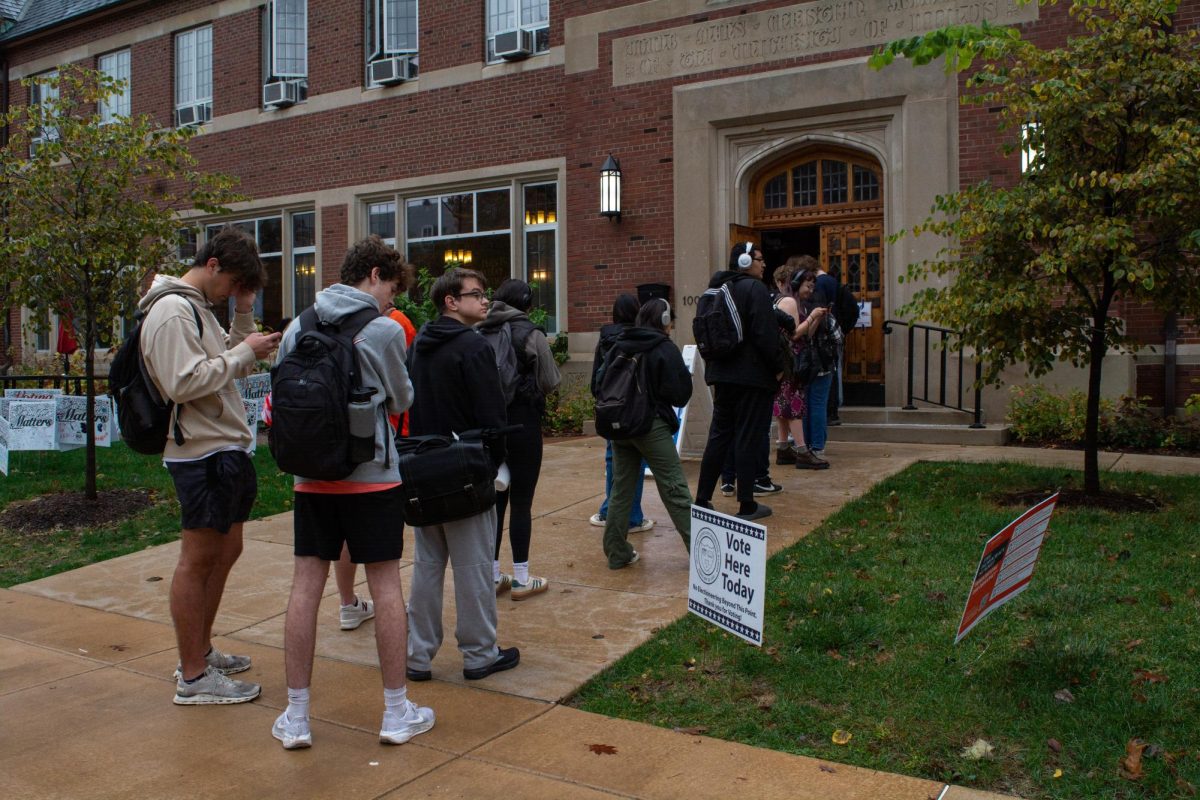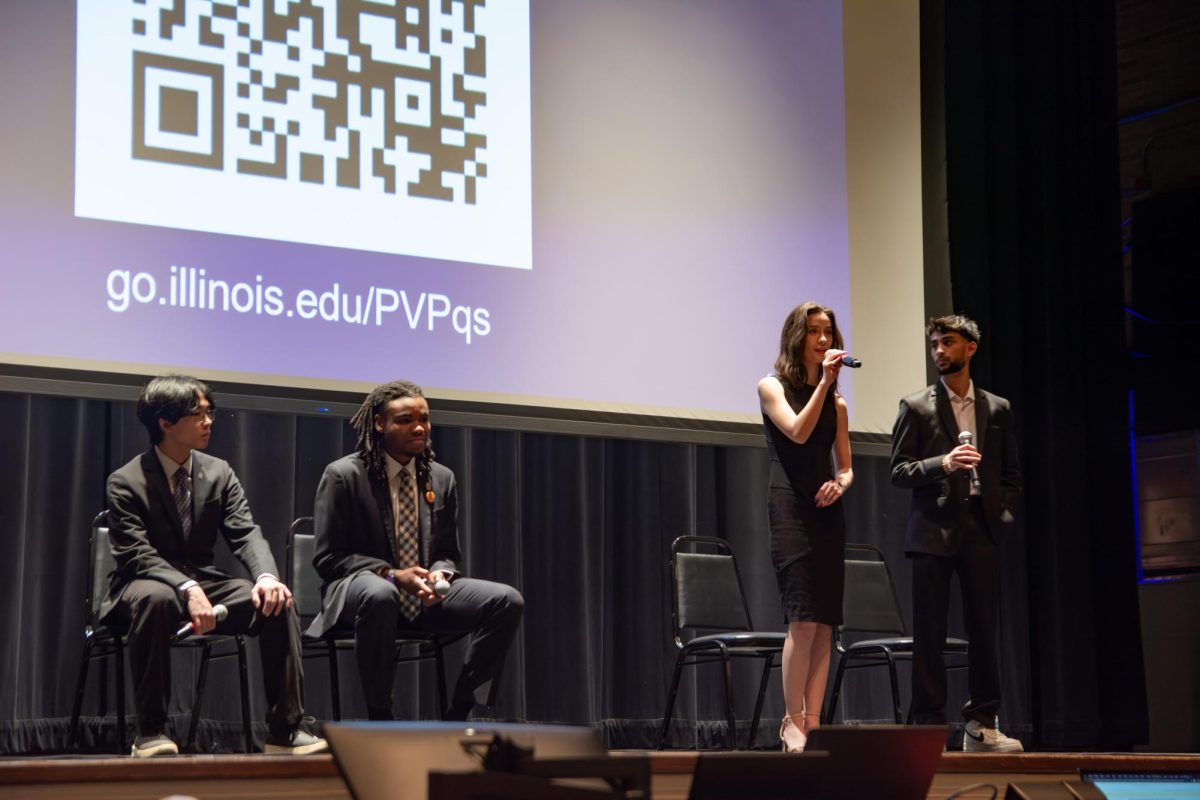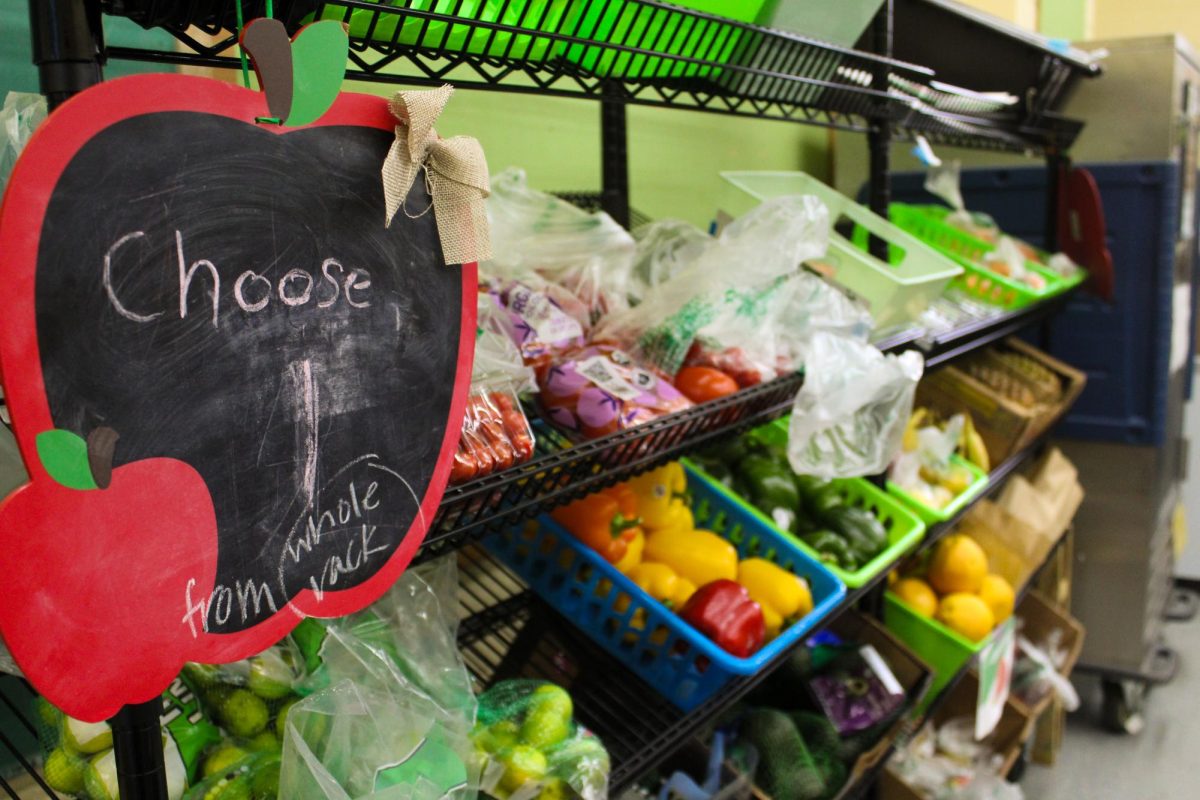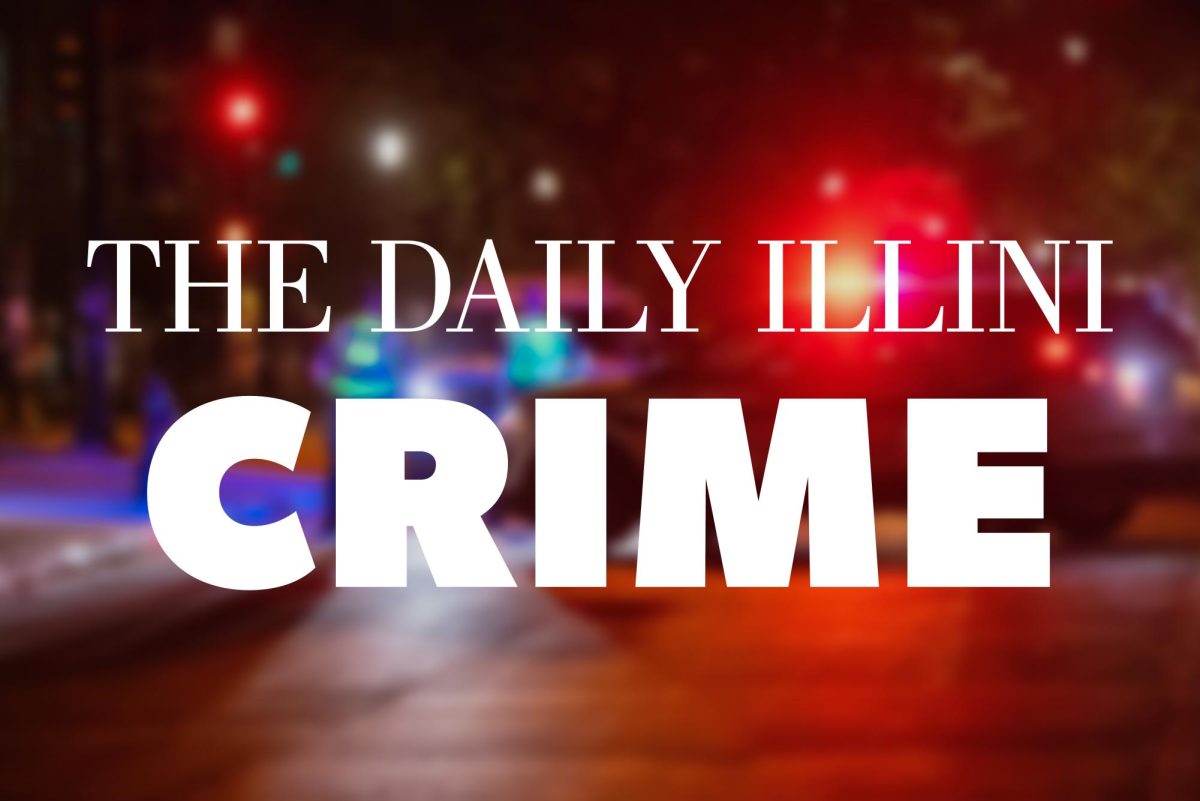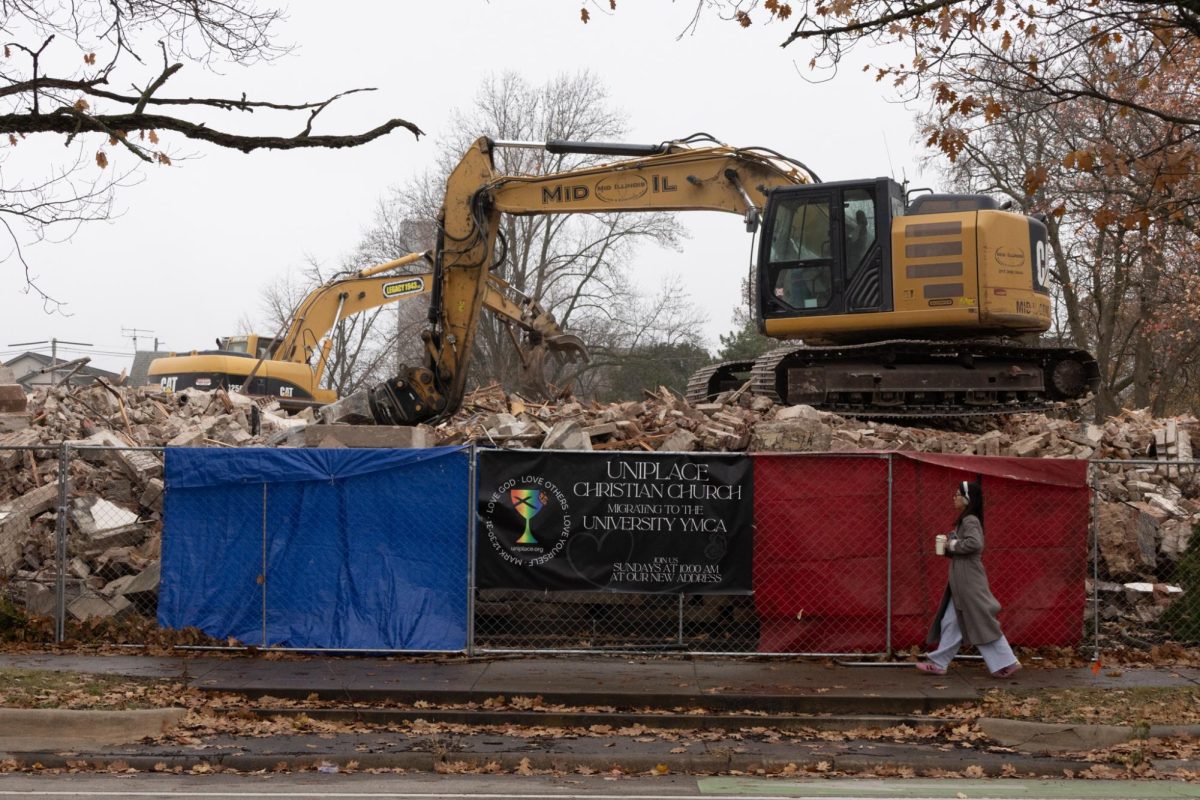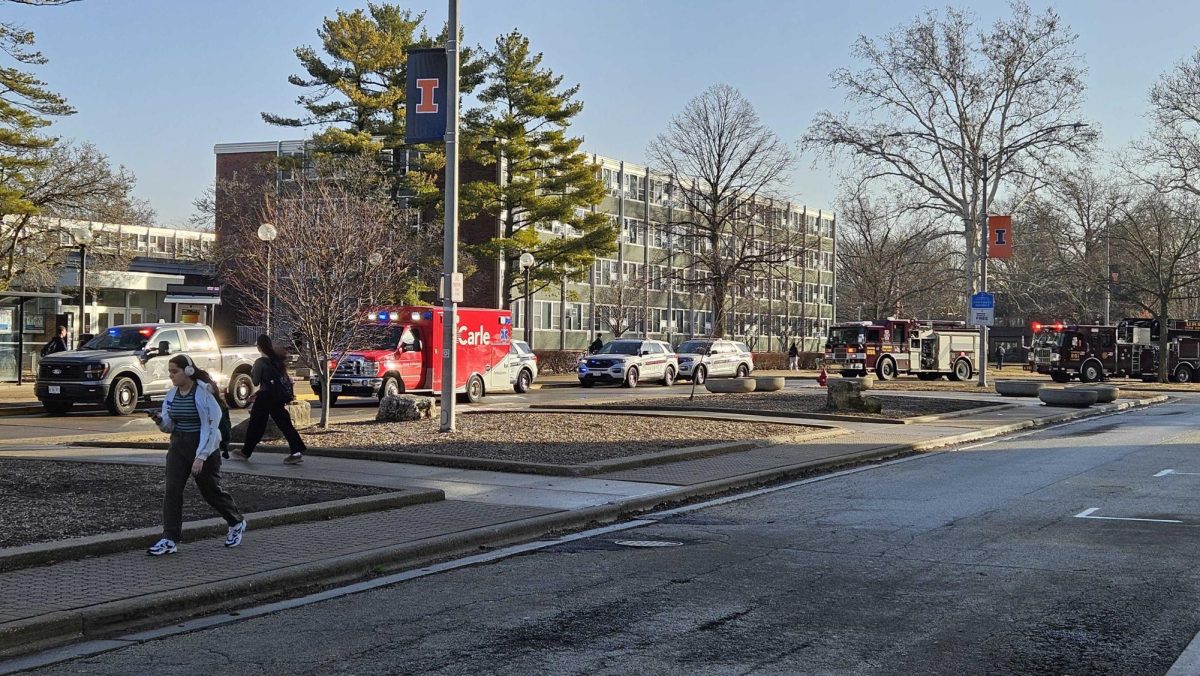With Election Day in full swing, many University students have made their voices heard in this election cycle by voting, queuing in long lines inside the Illini Union, mailing in ballots or traveling to their home precincts to do so. A few students, however, became even more deeply involved in politics and the election by joining various political RSOs on campus.
Illini Democrats, Illini Republicans, Turning Point USA and Young Democratic Socialists of America are some organizations that encourage students to get involved with politics. All four have noticed increased interest and participation in their RSOs, coinciding with the election.
Illini Democrats and Illini Republicans are openly political, partisan clubs through which students can directly get involved in campaigning, elections and politics. On the other hand, TPUSA and YDSA are more ideology-based, allowing members to explore topics through the lenses of conservative ideologies and democratic socialism, respectively. They do not directly endorse candidates.
“Illini Republicans is all about elections,” said Eann Tang, senior in LAS who is president of TPUSA and vice president of Illini Republicans. “We’re going to try to win. We’re going to try to help this candidate. We’re going to help him (former President Donald Trump) get interns, help him knock (on) doors. Meanwhile, (with) Turning Point, we’re all about ideas. A few big ones that we believe in (are) free speech, the free market and the Second Amendment — all of the amendments, actually — (and) patriotism.”
Like Illini Republicans, Emma Murphy, senior in LAS and president of Illini Democrats, noted that her organization’s events have also centered around the election and encouraging voter turnout.
Get The Daily Illini in your inbox!
“Obviously, Illinois is a very strong blue state, so we haven’t been too worried about Kamala Harris winning Illinois, but we’ve been kind of helping up some friends in swing states, getting people out to vote,” Murphy said. “Last week, we hosted a wonderful event where we phone banked — calling people in Michigan and Wisconsin, encouraging them to go out and vote for Kamala Harris, explaining what the stakes of the election are.”
Illini Democrats has emphasized the consequences of reproductive restrictions, hosting documentary screenings and reaching out to female voters. While Illini Democrats has focused more on elections at the national level, Illini Republicans has kept most of their efforts local.
“We don’t do anything on the national level,” Tang said. “Presidents, even senators, are way beyond our reach. We don’t officially endorse, but we will definitely support people on the Republican ticket. But (it’s) only people on the local level that it will seem more like (we’re) endorsing.”
Tang described how Illini Republicans recruits students for volunteer and intern positions for candidates running in local districts; the RSO also discusses elections, polls and other election-related topics at its meetings.
Membership in all four RSOs has increased this year, and so has interest in their outreach efforts. Sam Levenhagen, junior in LAS and co-chair of YDSA, has noticed this happening in her organization.
“We’ve definitely had more people showing up and more people interested in general in the organization,” Levenhagen said. “I’ve noticed that at tabling, more people tend to come up to us than they did in previous years. So I’m sure that’s definitely in part inspired by the election.”
Murphy agrees that the spike in political interest is partially due to the upcoming election. She also believes issues important to constituents are causing more of them to vote and care.
“I think people are just more energized and really fired up about the issues that are kind of on the ballot this year,” Murphy said. “We’ve seen a huge increase in female participants in our organization, and I think that’s because of reproductive rights being on the ballot and the looming idea in Project 2025 of having a national abortion ban.”
With the rise in election interest has come a heightened sense of tension surrounding it. Other hot-button issues driving and dividing voters include the Israel-Palestine conflict and Trump’s suitability as a candidate.
“Even in the national org(anization), with YDSA and DSA (Democratic Socialists of America) across college campuses, there’s a lot of division on what people think of candidates like Kamala Harris, who, like the Biden administration, has been pretty complicit,” Levenhagen said. “There’s a lot of division in leftist circles about, well, ‘Is a vote for Kamala a vote for complicity in genocide?’”
While some members of YDSA may be voting for third-party candidates or generally may not be voting for Harris due to issues like the Biden administration’s handling of Gaza, others still plan to vote for Harris, finding it more important to keep Trump from being elected.
According to Murphy, Illini Democrats believes Harris is the best candidate. They have endorsed Harris for president, a move that received little pushback internally. Similarly, most students in Illini Republicans support the Republican ticket for president, although not everyone in the RSO supported the same primary candidates.
“We are pretty much all in support of Trump because he’s the face on the Republican ballot,” Tang said. “Yeah, technically, he’s a convicted felon. But a lot of us see him as a sort of political prisoner. Instead, we believe that the charges that were brought by (Manhattan District Attorney) Alvin Bragg were not legitimate. If you actually read the charges, they were extremely flimsy.”
While the club currently supports Trump for president and defends his felony convictions, they do acknowledge the validity of the 2020 election and its results.
“We definitely agree that Biden won 2020,” Tang said. “That’s why he’s the president now. But at the same time, we want better election security. We would want voter ID for elections. But at the same time, (in) 2016, people were saying Trump was not a legitimate, elected president, so a lot of it is just partisan rhetoric (on both sides).”
Overall, Tang said the election and politics have become very polarized, something he finds unfortunate. He and Levenhagen see voting as a civic duty they hope everyone will partake in.
“I would just encourage everyone to get out and vote,” Levenhagen said. “It’s super simple. You can literally do it at the Union, you know. There’s so many ways to vote, and it’s worth your time because every vote counts; every vote matters.”



